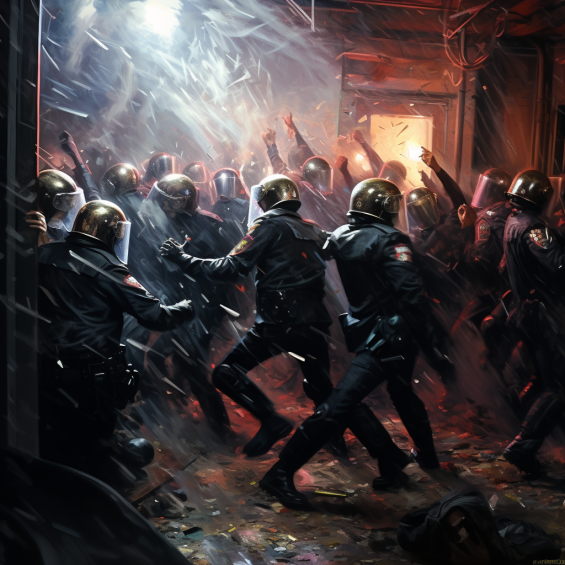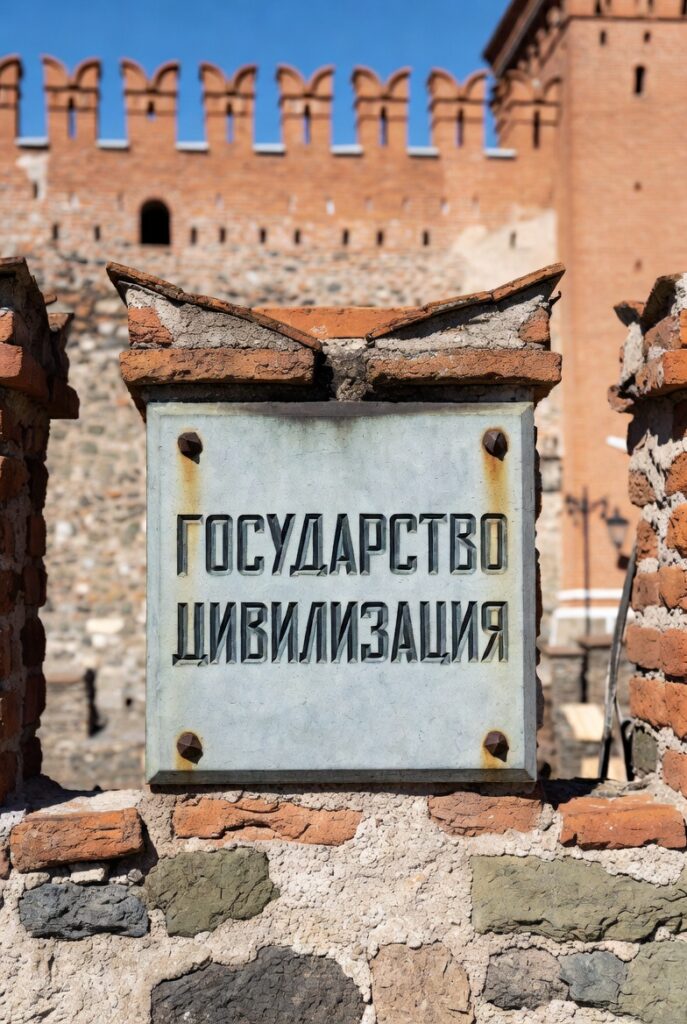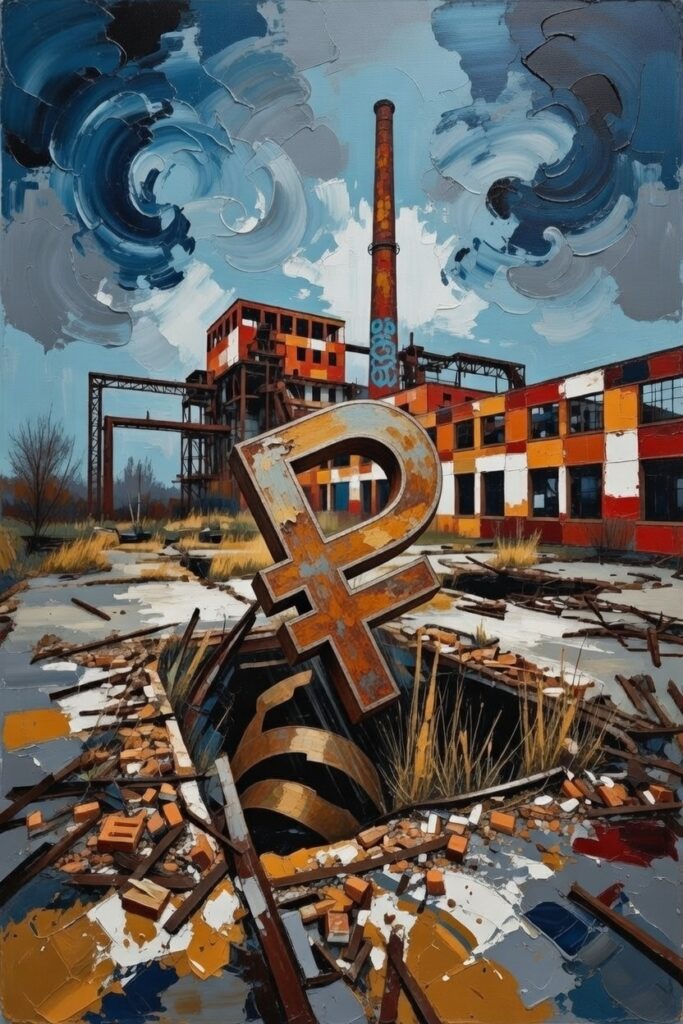The so-called «naked party» organised by blogger and TV presenter Anastasia Ivleeva (the participants were actually dressed) has unexpectedly become the cause of real harassment, bullying and possibly repression for its participants. The photos of celebrities in revealing outfits that made their way into the media have not only angered the usual suspects among the conservatives who constantly write complaints to the security services about this or that public figure who has supposedly crossed the line. They have also clearly upset someone more influential. Concerts by the artists who had performed at the party were cancelled, the unfortunate participants were literally removed from New Year’s Eve films (their scenes will be reshot) and film posters, and lost endorsement deals. Ivleeva herself was immediately suspected of tax evasion and threatened with criminal proceedings. All those involved in the party rushed to apologise to ‘society’ and ‘the people’, but this tried and tested remedy did not help. The concert cancellations continued. The attack even affected the artists who supported the war, such as Lolita, Philip Kirkorov and Dima Bilan. Of course, they, too, have apologised, but to no avail. The Kremlin’s political and information blocs are subtly trying to send a signal through public figures like Andrei Medvedev, a TV presenter and Moscow City Duma deputy representing the «United Russia» party, that it’s time to stop the attacks, but the bullying continues. All this is happening at the start of the election campaign, when the Kremlin could really use the support of pop stars loyal to the authorities.
The consequences of the «naked party» are confusing even the highest levels of the bureaucracy: they have not sanctioned the persecution of artists with whom the authorities have long collaborated, either through television channels or through those who organise state concerts. These people are wondering whether the artists are being attacked in order to target the officials affiliated with them, or whether someone showed the photos from the party to Putin or the members of the Security Council, who demanded that the alleged inappropriate behaviour be dealt with. It seems that the already established rules of the elite, which undoubtedly includes pop stars, have been rewritten yet again. Until this week, everything was simple enough: don’t speak out against the war (and better still, at least formally support it), don’t leave Russia and don’t attack the Kremlin. The private lives of these members of the elite remained their private business, in which the state had no business interfering. After the non-existent «LGBT movement» was declared extremist in Russia, public representatives of the authorities assured that sexual orientation itself was not affected by the bans: personal is personal and will remain as such. Ivleeva’s party wasn’t even an LGBT party, but somehow it got caught in the cogs of the repressive machinery. It is likely that the careers of the party-goers in Russia have been ruined for breaking some obscure rules still unknown to even those who are supposed to make them.
What has happened will give pause to many of the remaining artists in the country who have chosen to remain silent about the war or even formally support it in exchange for contact with their audiences at concerts and earnings. What can you sing and talk about, and what is now off limits? What is an appropriate way to dress and what no longer works? What can and can’t be shown in music videos and films? Who can star in these films — after all, it is far from certain that this or that actress or actor will not be among the disgraced, forcing the filmmaker to urgently delete and reshoot their scenes before the premiere. The system does not provide answers to these questions, it does not formulate rules (as was the case with statements against the war), but rather conceals them. In the case of the «naked» party, even bureaucrats would be puzzled: the event was attended by bureaucrats (I know that from those who were in attendance) and top managers of the companies loyal to the state. So far, the state has not interfered in the private lives of the ruler’s close entourage and public officials, but it is quite likely that these times are over. Now any given member of the elite does not understand what might bring the ruler’s wrath upon their head: imported clothing or a car, a forbidden party, a concert or a bad joke. The reason for the withdrawal of status, privilege and resources could theoretically be anything: after all, no one has released a new set of rules yet.
The system gives no guidelines to its members and all those loyal to it. On the one hand, it is doing its best to show that the war has not affected stability and everyday life in any way, so as not to disturb citizens and to lure back the professionals who had fled the country. Representatives of the elite and propagandists spoke proudly of restaurants and bars filled with clients to the brim, of the availability of all goods and products: to those who have the money, of course. Under the old rules, Ivleeva and her party contributed to this image of normalcy and stability. On the other hand, for some unknown reason, the system began to destroy the signs of this «peaceful» life. This equation with many unknowns will inevitably begin to unsettle and unnerve the moderate citizens who remain in the country, and even members of the elite. It is unlikely to lead to major protests against the authorities, but it will certainly boost the emigration of the professionals and business people that the government and the political bloc of the presidential administration are so keen on retaining in the country. These people have opted for familiar comforts, which may now be taken away from them overnight for obscure reasons. Professionalism and financial assets will allow them to find a new place to live without facing such risks. For people «tied» to bread-and-butter public and semi-public jobs, fear will not be the best motivation to work for the Kremlin and help the war effort. This is the kind of «present» that the Russian power vertical has given itself and its loyalists for the New Year. And it is far from certain that new rules will be formulated in the new year: parts of the system will continue to pull it in different directions.
Candidates with a surprise
The political bloc of the presidential administration wanted to provide Vladimir Putin with authoritative and transparent set of sparring partners in his campaign. These were to be the leaders of the parliamentary parties and their factions: Gennady Zyuganov (the Communist Party), Leonid Slutsky (LDPR) and Alexei Nechayev («New People»). There was no shame or danger in competing with them. Zyuganov attracted only the traditional CPRF vote, while Slutsky and Nechayev are not well known to the general public and cannot be described as attractive politicians. However, the Communist leader was not satisfied with the election results planned in advance by the presidential administration: Putin was supposed to set a record at the elections, that is, to get more than he did in 2018 (76% of the vote). This record, which the Kremlin will easily ensure through corporate mobilisation, electronic and multi-day voting, implies that other participants will get anti-records of low votes. They will have to split among themselves the other 20 per cent, although Zyuganov has never received less than 17 per cent in previous campaigns. The CPRF leader did not want to retire with an anti-record (he will be 85 at the time of the next presidential election) and nominated Nikolai Kharitonov, a CPRF State Duma deputy, to replace him. Kharitonov, 75, was the Communist Party’s presidential candidate in 2004 and won 13.5 per cent, which was less than the Communist Party’s rating at the time. Zyuganov did not cross any red lines: he picked a venerable elder in his place. But he did create some problems for the presidential administration’s political bloc, as part of the CPRF electorate will stay home because they do not know Kharitonov well and are unlikely to want to vote for him. This leads to problems with voter turnout, for which the Kremlin has set a separate target of 70−80%. Kharitonov could discourage several per cent of citizens of communist persuasion from voting, and the presidential administration will have to solve this problem somehow. This solution is likely to be increased corporate mobilisation.
After Zyuganov, Alexei Nekhaiyev, the leader of the «New People» party, imposed his own rules and candidate on the political bloc. It was already known in the summer that he did not want to spend much money on a campaign with a predictably low result. Nechayev proposed Vladislav Davankov, deputy speaker of the State Duma, as his running mate, but the Kremlin was not happy with his age: at 49, Davankov is considered to be relatively young. In the autumn, it was thought that the Kremlin had pressured the «New People» leader into running (the mainstream Russian business media also wrote about this), but Zyuganov’s independent move became an example for Alexei Nechayev. He was allowed to withdraw from the election, citing Kharitonov’s low status, and nominated the above-mentioned Davankov instead. This left the presidential administration with another potential problem: the «New People» candidate could attract an electorate unhappy with Putin’s age. The probability of this happening is not very high, but it is not zero either. Therefore, we can Davankov to run a very quiet campaign in the media (especially TV) and on billboards, which are popular among the Russians. Just in case, the Kremlin has also prepared the emergency scenario that it had previously used with Pavel Grudinin, the surprisingly popular CPRF candidate in the last elections. The media machine will try to counteract the growing popularity with criticism and kompromat.
However, the problems facing the presidential administration and Putin himself do not end there. It is likely that the Russian president is heading for the last election of his political career. In the campaign, he is not competing against the leaders of the parties, but the second or even tenth (in the case of Kharitonov) league of their public figures. In all likelihood, the Kremlin will try to make up for the lack of quality boosting the sheer number of candidates, adding political technologist Andrei Bogdanov or a Communist candidate-spoiler to the campaign. However, this will hardly work to lend any status or solemnity to Vladimir Putin’s set of sparring partners. It will turn out that the president won with the help of all the Kremlin’s tricks and the stratagems of picking deliberately weak opponents whom the broad masses of Russians simply do not know. In the event of social problems and difficulties or a new wave of mobilisation, the electorate will remind the authorities of this Pyrrhic victory.










